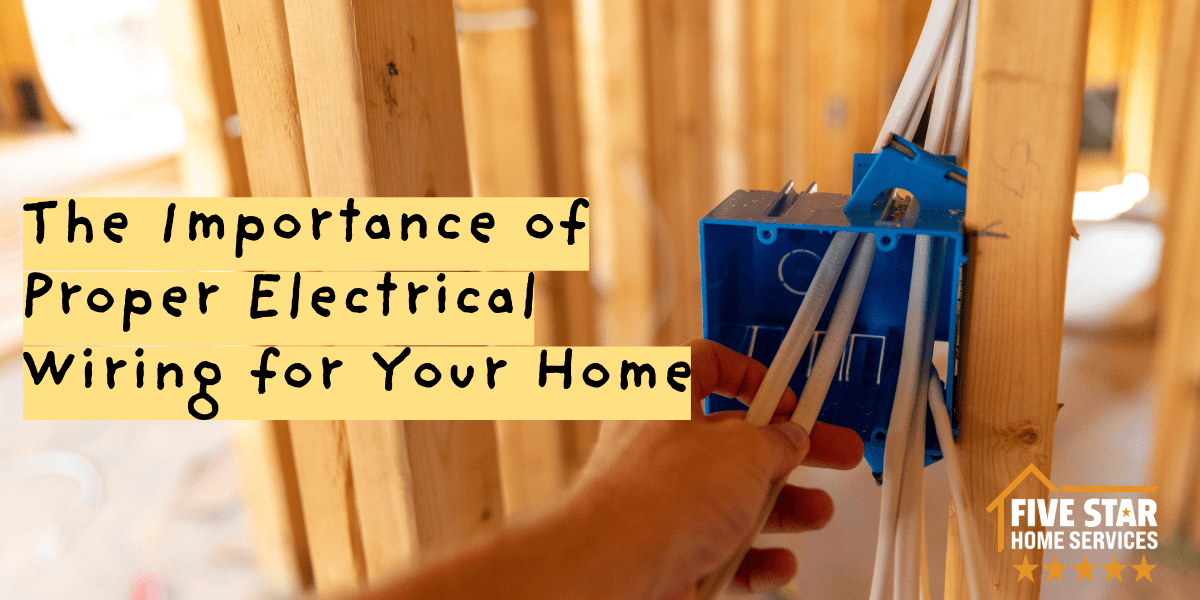The electrical wiring in the home encompasses more than just the physical wires visible to us. It involves everything from the power meter, where electricity from the utility company is regulated, to the main circuit breaker and then to the individual circuits throughout the house, which supply the electricity needed to run electrical appliances and other equipment.
A circuit is an electrical current path that starts and ends in the main panel (or main circuit breaker). The standard household electrical wire has three wires protected by an outer insulated sleeve.
- Electricity from the main panel to the appliances is carried by a hot wire, usually a black wire.
- The electrical current from the appliances is carried back to the main panel via a neutral wire, usually white.
- You will also find a grounding wire that also returns to the main panel and then to the ground or earth, and this wire is usually green or green with yellow stripes, or just bare copper.
The National Electric Code does not allow other conductor wires to have the same color as the grounding wire to stress its importance. Sometimes, a short may occur in the circuit along the hot wires, and the role of the grounding wire is to direct this electrical current to the earth to prevent electric shock or fires from occurring.
Electrical wiring also has different sizes (gauges). Generally, the heavier the gauge, the thicker the copper wire, which means it can carry more electrical current. A low number designation means that it is a heavier gauge, whereas smaller gauges are numbered higher. For example, in a typical household, a 14/2 gauge can accommodate a maximum of 15 amps, and a 12/2 gauge accommodates a maximum of 20 amps. These amp ratings must match the capacity of the circuit breakers as well, or else it may result in a faulty circuit or even a fire.
Proper installation of electrical wiring is imperative due to safety implications. The risk of sparks, fires, electrocution, and electric shock is greater if done incorrectly. Electrical appliances are also at risk of being damaged. In some instances, due to incorrect wiring, energy usage may increase, resulting in a substantially higher electrical bill.
Proper wiring can be evaluated by a licensed electrician who can check the following points:
- Fully functioning electric meter. This should also be properly installed, and signs of wear and tear, rust, or water (and other) damage should be absent. Otherwise, an upgrade or a replacement might be needed.
- Circuit breaker capacity. The main electrical panel or circuit breaker box should be able to run safe levels of current.
- Grounding. This ensures that the connection of the electrical current to the earth or ground is not interrupted. If not properly grounded, the electrical wiring can increase the risk of electric shock.
- Ground Fault Circuit Interrupters (GFCIs). The proper wiring of GFCIs is important as they are safety devices that cut off the electrical supply to the outlets if a malfunction is detected.
- Physical and functional integrity of electrical wires. The home’s wiring must be free from damage or fraying, protected from moisture or humidity, and located where it should be mostly secured. It should also match the electrical load needed for the specific area of your home.
Being safe in your home also means being aware of the potential dangers. According to data from the National Fire Protection Association, two-thirds of home fires caused by electrical distribution and lighting involved wiring and related equipment.
Signs of Faulty Wiring
Burnt outlets or switches that are hot to touch
One of the surest ways to know that there is a problem with wiring is if you notice discoloration on the outlets (the color has turned brown or darker) or if they are warm or hot. This points to wiring that is generating heat because it is worn out, damaged, or faulty. This is a fire hazard and should be taken seriously.
Sizzling, buzzing, or other unusual sounds
These sounds that indicate the presence of sparks (sizzling), or vibrations caused by a loose wire or a circuit problem (buzzing) should not be ignored as they are signs that you have wiring issues.
Burning or strange smells
Sparks caused by damaged wires can cause burning smells, especially if they occur near the outlets, resulting in a “burnt plastic” smell. Fire damage may have already occurred at this point and thus needs to be checked.
Flickering or dimming lights
Lights that are not getting enough voltage can exhibit dimming, and flickering occurs if a circuit is overloaded. Faulty wiring may be the cause, especially if most of the lights in the house are flickering.
Frequently tripping breakers
This is a safety feature that prevents circuit overload that may also cause overheating. If this is something that happens several times a month, you may have to think about rewiring your home.
Electrical shock
Every time you plug in a cord, a tingling sensation is a sign of faulty wiring. This cannot be overlooked as the consequences to your health and body are serious, ranging from numbness and burns to heart and respiratory problems.
Old wiring
Some older homes may still have old wiring, which is mostly aluminum instead of copper wiring. Aluminum tends to overheat more, and a burnt smell is often a sign of faulty aluminum wiring. Another type of old wiring is the open wire or “knob and tube” wiring, common in houses built before 1950. Knob and tube did not have ground wiring, which makes it a fire risk.
Proper installation of wiring is serious business, and it is recommended that electrical safety inspections be done every ten years. If you have noticed any problems related to the electrical wiring in your home, it is best to act immediately and get professional assistance. Five Star Home Services is home to trained and licensed electricians who know what to do about your specific electrical problem. If you are considering rewiring your home or need to handle an electrical issue, count on Five Star Home Services to do a great job! Call now at (833) 405-8009.


